Nigeria May Lose 2m Children to Pneumonia, UNICEF Warns
 The United Nations Children’s Fund (UNICEF) has said Nigeria may lose two million children to pneumonia in the next decade if modalities are not put in place to curb the disease.
The United Nations Children’s Fund (UNICEF) has said Nigeria may lose two million children to pneumonia in the next decade if modalities are not put in place to curb the disease.
The UN body identified malnutrition, air pollution and lack of access to vaccines and antibiotics as the drivers of preventable deaths from pneumonia, which last year killed one child every three minutes in Nigeria. In a statement wednesday by its communications expert, Ms. Elaina Drakopoulos, the body said boosting efforts to fight pneumonia could avert over two million child deaths from pneumonia and other major diseases in Nigeria.
Leprosy Still Endemic in 18 States in Nigeria, Says FG
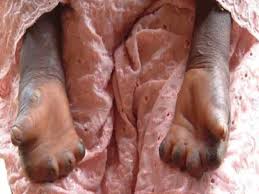 The federal government has said that 18 states are currently leprosy endemic, with few cases of the disease also being reported in others. It said Nigeria was among the few countries in the world still reporting above 1000 new cases annually, adding that in 2018 the country recorded 1095 new leprosy cases.
The federal government has said that 18 states are currently leprosy endemic, with few cases of the disease also being reported in others. It said Nigeria was among the few countries in the world still reporting above 1000 new cases annually, adding that in 2018 the country recorded 1095 new leprosy cases.
According to the 2015 National Leprosy Review, government said 18 states were still endemic in leprosy although there were pockets of endemicity in few other states of the federation. The Minister of state for Health, Senator Olorunnibe Mamora, who stated this at the ceremonies marking the 2020 World Leprosy Day, held in Abuja recently, said the federal government has made notable progress
Addressing HIV/AIDS will boost economic recovery efforts
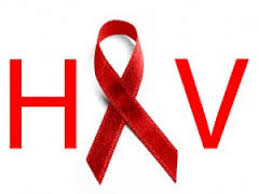 Following the economic recession of 2016, the Nigerian government developed an Economic Recovery and Growth Plan for 2017-2020 with three broad strategic objectives: restoring growth; investing in human capital; and building a globally competitive economy that achieves agriculture and food security, industrialization, improved transport infrastructures and energy sufficiency.
Following the economic recession of 2016, the Nigerian government developed an Economic Recovery and Growth Plan for 2017-2020 with three broad strategic objectives: restoring growth; investing in human capital; and building a globally competitive economy that achieves agriculture and food security, industrialization, improved transport infrastructures and energy sufficiency.
Of these three objectives, one stands out: recognizing the importance of investing in human capital. This represents a major shift by the government, as it previously focused mostly on developing infrastructure—a move that came at the expense of other sectors, including healthcare.
Nurses seek big roles, more manpower in hospitals
 The President of the National Association of Nigeria Nurses and Midwives, AbdlRauf Adeniji, has said the nurses in hospitals across the country are not enough.
The President of the National Association of Nigeria Nurses and Midwives, AbdlRauf Adeniji, has said the nurses in hospitals across the country are not enough.
Adeniji spoke during a programme organised by the Nursing and Midwifery Council of Nigeria and NANNM in conjunction with the Ministry of Health in Abuja to launch the Nursing Now campaign. He said Nigeria had less than 120,000 nurses for its 200 million population.
Why we can’t stock Lassa fever drugs
 Nigerian pharmacists say they do not stock the Lassa fever drug of choice, Ribavirin, because it is not a medication for the treatment of “typical day-to-day ailments.” They said that only the Federal Government that can stock products like that.
Nigerian pharmacists say they do not stock the Lassa fever drug of choice, Ribavirin, because it is not a medication for the treatment of “typical day-to-day ailments.” They said that only the Federal Government that can stock products like that.
The pharmacists and operators of pharmaceutical outlets disclosed this to PUNCH HealthWise as Nigeria continues to fight the haemorrhagic fever that has continued to spread throughout the nation. At least 12 states have recorded over 200 confirmed cases of Lassa fever outbreaks, with about 41 deaths, according to the Director General,
Health officials put China returnees under surveillance
 Officials of the Ministry of Health’s Port Health Services at the Murtala Muhammed International Airport, Lagos, have put two passengers who arrived from China under surveillance as the nation continues to monitor the border posts against the deadly Coronavirus.
Officials of the Ministry of Health’s Port Health Services at the Murtala Muhammed International Airport, Lagos, have put two passengers who arrived from China under surveillance as the nation continues to monitor the border posts against the deadly Coronavirus.
This happened as countries around the world, including the United States and Australia, said they would deny entry to all foreign visitors who had recently been in China, where the virus first emerged in December. The death toll from the new virus, which is officially called 2019-nCov, hit 259 on Saturday.
WHO: Garlic, Salt Water Can’t Prevent Coronavirus Infection
 The World Health Organisation (WHO) has said that eating garlic and regularly rinsing nose with saline solution will not guard against coronavirus infection (2019-nCoV). Information obtained from WHO’s website on Monday dispelled various myths and rumours surrounding the 2019-nCoV that could potentially harm the public’s health.
The World Health Organisation (WHO) has said that eating garlic and regularly rinsing nose with saline solution will not guard against coronavirus infection (2019-nCoV). Information obtained from WHO’s website on Monday dispelled various myths and rumours surrounding the 2019-nCoV that could potentially harm the public’s health.
WHO refuted some of the myths and rumours, noting that garlic was a healthy food that may have some antimicrobial properties. “However, there is no evidence from the current outbreak that eating garlic has protected people from 2019-nCoV,” it said.
WHO launches campaign against China virus misinformation
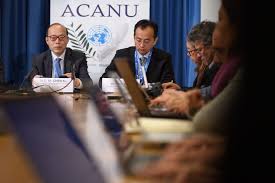 The World Health Organization said Monday it was working around the clock with internet and social media giants to combat widespread misinformation surrounding the deadly novel coronavirus outbreak.
The World Health Organization said Monday it was working around the clock with internet and social media giants to combat widespread misinformation surrounding the deadly novel coronavirus outbreak.
WHO chief Tedros Adhanom Ghebreyesus warned of the dangers posed by "the spread of rumours and misinformation" as China saw a surge in deaths and infections from the highly contagious virus. "We have worked with Google to make sure people searching for information about coronavirus see WHO information at the top of their search results," Tedros said in opening remarks to the UN health agency's Executive Board meeting in Geneva.
WHO tasks countries on improved cancer services
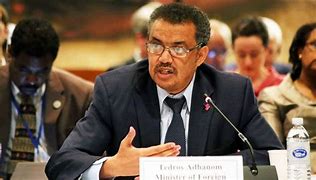 The World Health Organisation (WHO) has stressed the need to urgently improve cancer services in low-and middle-income countries. The organisation made the call in a statement posted on its website on Tuesday to mark the World Cancer Day on February 4.
The World Health Organisation (WHO) has stressed the need to urgently improve cancer services in low-and middle-income countries. The organisation made the call in a statement posted on its website on Tuesday to mark the World Cancer Day on February 4.
It warned that the world would see a 60 per cent increase in cancer cases over the next two decades, if current trends continue. The WHO said that the greatest increase, which was an estimated 81 per cent in new cases, would occur in low-and middle-income countries, where survival rates were currently lowest.
HIV drugs touted as weapon in war on coronavirus
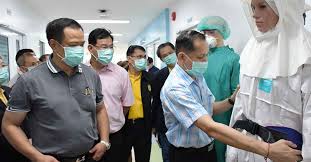 As doctors scramble to contain the fast-spreading coronavirus, a potent brew of anti-retroviral and flu drugs has emerged as a possible defence against the mysterious sickness that has killed hundreds.
As doctors scramble to contain the fast-spreading coronavirus, a potent brew of anti-retroviral and flu drugs has emerged as a possible defence against the mysterious sickness that has killed hundreds.
But the science is inconclusive on whether they are actually effective and experts say the successful treatment could take years. Here is what we know -- and don't know -- about the drugs deployed against the SARS-like virus.






